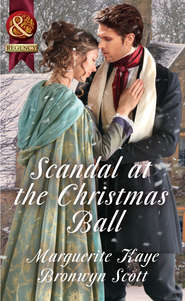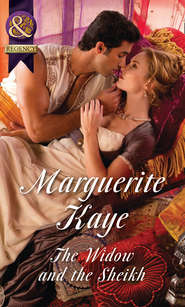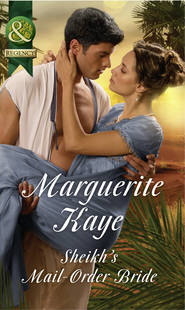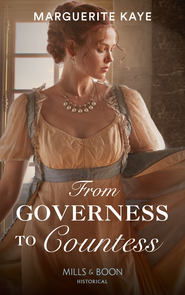По всем вопросам обращайтесь на: info@litportal.ru
(©) 2003-2024.
✖
The Highlander's Return
Настройки чтения
Размер шрифта
Высота строк
Поля
Alasdhair opened his eyes, pushing his hair back from his high brow, and smiled lazily at her. His mouth always curved readily into a smile. It was made for smiling, despite the fact that life had given him little to smile about. Ailsa smiled back.
Her smile was dazzling, Alasdhair thought. There was something about Ailsa, a natural exuberance, that always made him feel as if nothing was quite as bad as it seemed. Despite her mother’s indifference and her father’s tyranny, Ailsa had a love of life that was infectious. Alasdhair held out his hand. ‘Come and sit up here with me and watch the sunset,’ he said, making room for her on the narrow bench.
He watched as Ailsa picked her way daintily towards him. Her skirt and petticoat were old, a faded grey that was once the same vibrant blue as her eyes. Her arisaidh lay discarded at her feet. She had no jacket or waistcoat, only her sark, the ties at the neck loose. The wide sleeves of the shift billowed out over her arms, that were tanned a light biscuity colour. Her fair hair, streaked almost white in places by the sun, trailed in a cloud down her back, wispy curls haloing her forehead. He saw it then, so clearly he couldn’t understand why he hadn’t realised it before. She was beautiful.
As she sat down beside him, her skirts brushing his plaid, awareness shot through him. He could feel her thigh, warm and soft through the fabric of her skirts. Her forearm touched his, slim and elegant, the wrist delicate, so tiny he could circle it with his fingers. She smelled of sea and sand and pure Scots air.
Ailsa, the feisty wee lassie he had taught to ride and to fish, and to sail, and even, at her urging, how to use a dirk. It was with that wee Ailsa he had spent the day, but it was a different one who was in the boat now, her scent making it impossible for him not to notice her. This Ailsa, the enticing creature sitting next to him, her arm resting on his, her hair tickling his face, the contours of her breasts outlined by the breeze pressing against her sark, was someone quite different from the girl he’d sailed out with only this morning. This Ailsa was a sensual creature, with distracting curves and a tantalising presence.
Desire lurched at him, sending the blood surging to his groin. Embarrassed, Alasdhair shifted in his seat. Under the pretence of tightening the sail, he looked at her and wondered if he had been blind. The long neck. The tender hollow of her throat. The soft swell of her bosom. The indent of her waist. The elegant line of her calves. Her ankles, the slender high-arched feet that rested on a lobster creel that lay on the bottom of the boat, so delicately beautiful he had an overwhelming urge to press his lips to them.
How had he failed to notice this remarkable transformation?
He swung An Rionnag round to catch the wind. The tiller jerked violently as the sail filled and instinctively Ailsa reached out to help try to control it. Her hand met Alasdhair’s on the worn wood. Something sparked at the contact, a crackle in the air like the drop in pressure that presages a tide turning or a storm coming. Blue eyes, almost purple, met smoky brown. They looked at each other as if seeing for the first time. As if being for the first time.
Alasdhair’s breath caught in his throat. His stomach tightened. ‘Ailsa?’
She felt as if she had been waiting for this moment all her life. As if everything in the world, the stars, the sun and moon, had been waiting too for this time and this place and this man. As if they were about to emerge from their chrysalises, transformed, readied for their real purpose. This moment. This perfect, perfect moment.
‘Alasdhair.’ Even his name seemed different.
He hardly dared touch her, but he was hardly able not to. He tenderly stroked the wisps of curls away from her forehead. He kissed the fair brows. She closed her eyes, tilting her face towards him. He kissed the sunburnt tip of her nose. It was lightly scattered with freckles. She sighed. He put his arm around her. She nestled closer. Her bare foot brushed his. It was the most erotic thing that had ever happened to him. The arch of her sole. The tickle of her toes, curling delightfully on his.
Then his lips found hers and he kissed her, and in that second where their lips met, that awkward moment of his inexperience and her untouched lips, he knew. And he knew, from the crackling of the air around them, the stillness of sea, the suspension of The Star’s rocking, he knew that she knew, too—how could she not? For their kiss had changed the world for ever.
His kiss was gentle, too gentle to be sufficient, already more than he had ever dreamed of. He was afraid to frighten her with the depths of passion even this almost innocent caress aroused in him. He was horribly conscious of the five-year gap in experience that lay between them, astounded, astonished at the way her untutored, naïve touch set him afire.
It had always been he who protected her when she courted danger. It was always he who came to her rescue when she came to grief—and she often did, for she was fearless. It was always he who was there to pick her up and dust her down and dry her tears and promise not to tell. He who kept her safe.
He did so now, forcing himself to end their embrace, to put her from him, though his body sang and pleaded and begged him not to and Ailsa, too, murmured a soft, breathy protest in a voice he’d never heard before. A voice that whispered over his senses like a siren. He had never felt such a whirlwind of emotions storming through him, yet he had enough, just enough, control left. He would not take advantage. Despite her mother’s poor opinion of him, he was an honourable man.
Ailsa struggled for breath. She touched her lips with her fingertips. So that was what it was like to be kissed! Heady, as if she’d had too much wine or too much sun. Frothy like the waves. Exciting like a sudden summer storm. That was a kiss.
‘Ailsa, I didn’t mean—I should not have—you know I would never take advantage.’
‘Don’t be daft, of course I know that.’ She smiled at him, daringly taking his hand and pressing it to her cheek. It was a nice hand, though it was callused from the endless menial jobs her father doled out, his way of trying to bring Alasdhair’s rebellious spirit under control—teaching him his proper place in the scheme of things. Her father would have a long wait, she thought.
‘Are you sure I didn’t frighten you?’ Alasdhair asked.
She shook her head.
‘I don’t know what came over me. I felt as if I was seeing you properly for the first time.’
‘That’s exactly how I felt.’ They laughed. Then they kissed again, and this time their kiss was more confident. It had the tantalising sweetness of a promise not yet bloomed to full ripeness. Tentative, like all new-born things, and heady, like all things strange and illicit.
The tilt of the boat on the crest of a wave, the scrape of her keel on the first of the rocks that bordered the shore, finally brought them to their senses. They laughed in unison when they realised how far they had travelled without noticing. With the ease of familiarity and long practice, they set about bringing An Rionnag into the castle’s little private jetty where the laird’s own boat, embossed with the Munro coat of arms and with places for sixteen oarsmen, took pride of place. Leaping on to shore, Alasdhair eyed it with a mixture of disdain and trepidation. Dread God, was the Munro motto. He doubted the laird did. Lord Munro bowed to no one. He alone owned his world, his fiefdom and all the people in it. A feudal laird in every sense, even his wife and children were there to do his bidding. Looking up, Alasdhair saw the shadow of a figure at the long windows that overlooked the castle’s gardens.
‘Mother,’ Ailsa said anxiously, following his gaze. ‘I didn’t tell her where I was going.’
‘Do you think she’ll have had plans?’
‘For my birthday?’ Ailsa laughed scornfully. ‘I doubt she’ll even have remembered it’s today.’
‘Do you want me to come in with you?’
‘You’ll only make her worse if she’s in one of her moods.’ The brightness of the day was fading with the sun, that had almost set. Her mother was waiting for her, she could sense her brooding presence. ‘I’d better go to her, get whatever it is out of the way.’
‘Ailsa?’
‘Aye?’
‘Today. It was special.’
Ailsa smiled. ‘Yes it was, Alasdhair, the most wonderful thing that has ever happened to me.’
‘And me.’ He wanted to kiss her again. He hated it ending like this, under Lady Munro’s watchful gaze. In the gloaming, they should be nothing but shadows, but Alasdhair wasn’t convinced she couldn’t see in the dark, like some malevolent wildcat. ‘One day,’ he said, satisfying himself with pressing Ailsa’s hand, ‘we’ll be together for always and then every day will be special like today.’
‘One day, and for always,’ she agreed.
It was a promise. A solemn vow they both intended to keep.
Chapter One
Spring 1748
The drums had been beating out their grim message for over a week now. Highlanders had gathered from near and far on this most sombre day for the burial of Lord Munro, Laird of Errin Mhor. In the great hall of Errin Mhor castle, the coffin stood on its bier, draped in a black velvet mort-cloth embroidered in gold thread with the Munro motto, Dread God. It was the same cloth that had adorned the coffin of Lord Munro’s father, and his father before him.
Ailsa Munro leaned precariously out of the tiny window of the small turret room that she had claimed for her own parlour, the better to survey the gathering mourners. Tall as she was, the window was built high into the wall, requiring her to stand on tiptoe. Had any one of the mourners chosen to look up, they’d have caught a charming glimpse of the laird’s daughter, her distinctive golden hair piled precariously high on her head, her vibrant blue eyes alight with interest, looking rather more like a princess from a fairy story waiting to be rescued than a grieving daughter about to join a funeral procession.
The mourners, however, were too intent on passing the time of day with each other and speculating upon the likely changes the laird’s passing would entail, to bother with looking up. Auld enemies and allies alike mingled in the weak spring sunshine. Kith and kin, and a few—a very few—friends. For it took fortitude and a thick skin not to become for ever estranged from such a dour man, as Lord Munro had been. Downstairs, where Ailsa should be by now, the men of highest status loitered, ready to be granted the honour of bearing her father’s colours, his standards, claymore, dirk and targe. Clan chiefs and neighbouring lairds, the cream of the Highland aristocracy, all had come to pay their respects. Even those who had been for the Pretender during the late Rebellion had, with the passing of Lord Munro, a staunch and vociferous supporter of the crown, come to mend fences with his son, Ailsa’s brother Calumn.
The funeral of a laird. Such an occasion as this should be filled with lamentation, but for Ailsa, as for the majority of people present, the day was much more about marking the end of an era and looking to the future than mourning an old man’s passing. In these fast-changing times, with the Jacobite cause defeated, Bonnie Prince Charlie fled for France, and the Government set on turning the law of the land into the weapon that would destroy the rebellious Highland clans, Lord Munro had become an anachronism, an old-fashioned feudal laird intent on keeping with tradition at any cost. He’d retained the loyalty of his people, if not their respect, but he never knew their love.
Ailsa sighed as she closed the window. Her own relationship with her father had been like the Scottish winter, she thought as she made her way, via the back stairs, to her bedchamber—cold and driech with occasional storms, when her own not inconsiderable will clashed with Lord Munro’s consistently unyielding disposition. Fortunately, since the laird had been largely indifferent to his daughter’s existence, and on the whole she had been at pains not to remind him of it, these confrontations had been memorable but infrequent.
Images from that worst confrontation of them all crept into her mind like spectres. Six years had passed, long enough for it to be water under the bridge. Cold, dark and icy water. Ailsa shivered and tried to banish the haunting memories from her mind.
There were enough ghosts at large today already; no need to conjure up any more from the past.
She stuck a few more precautionary pins into her thick golden hair, in what she already knew was a vain effort to prevent it escaping the constraints of its bun. ‘Thrawn old bugger as he was, he was still my sire,’ she said aloud to her reflection. ‘It would be nice if I could come up with one happy memory on the day we bury him.’
But she couldn’t, though it was not for the want of trying. For old Lord Munro had been a long time dying, grimly clinging on to the thread of his existence long after his wife, his children and his doctor had given him up for gone. As in life, so in his exit from it, Lord Munro had been determined not to depart his mortal coil until he was good and ready. ‘So we can’t really be blamed for being more relieved than sad,’ Ailsa said, continuing to speak out loud to herself, a habit developed as a child, when she had invented several friends to keep her company. Being the laird’s daughter, she had not been allowed to mix with the village children. ‘At least he’ll have a grand send off, for this must be the most long-awaited and best-planned funeral there has been in the Highlands for many a year.’
She fixed a pretty gold brooch intricately worked with an ancient Celtic design to her dress, and surveyed her appearance in the long mirror with a critical eye. Almost without exception, everyone acquainted with Lady Munro, an acknowledged beauty, commented on the strong resemblance between mother and daughter, but Ailsa found the comparison wearisome. Frankly, the last thing she wanted to be told was that she was like her mother, but there was no getting away from it. In the last few years her hair had lost its girlish fairness, taking on the same burnished gold shade as her mother and both her brothers. Like herself though, it seemed to have rather too much of a mind of its own, and was never tamed for long. And as to her eyes—yes, they were the same striking colour as her mother’s too, though not, as one swain had claimed, royal purple. They reminded Ailsa more of the purpley-blue colour of a bruise. Her face was a nice oval, and her features on the whole seemed to please people, though in her own opinion her mouth was a little too large. Did that amount to beauty? She didn’t know. What she did know was that unfortunately there was no escaping the mirror’s evidence—she was her mother’s daughter.
Ailsa pulled a face. In her opinion, her mother had more reason than most to be relieved by Lord Munro’s death, for it had by no means been a happy marriage. How could it have been, with the laird expecting unquestioning obedience, and his lady forced to forsake all others for him? Even her own children. If his death was a welcome relief, Lady Munro was doing her celebrating in private. ‘Whatever it is she’s feeling, she’s keeping to herself as usual,’ Ailsa muttered to her reflection. ‘I swear it is ice and not blood which runs through Mother’s veins.’
She gave the neckline of her dress a final twitch. Like all her clothes, it was an expensive garment, something her mother had insisted on since she had turned sixteen.











